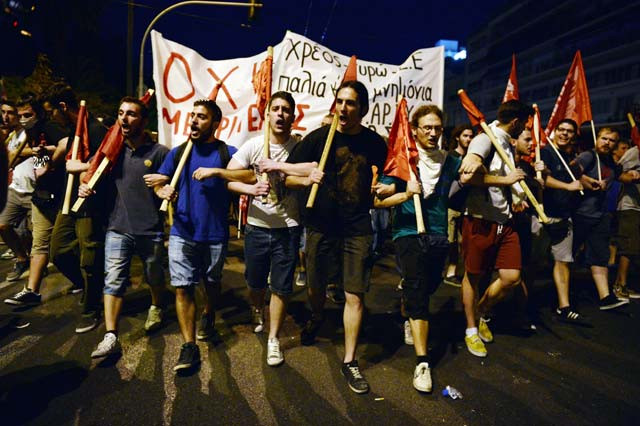The bitterest of medicines
IMF wants debt relief and restructuring rather than more debt, which on past performances is unlikely to be paid

The government of Alexis Tsipras in Athens came to power promising to do almost the exact opposite of what he has now persuaded his parliament to approve. PHOTO: AFP
The government of Alexis Tsipras in Athens came to power promising to do almost the exact opposite of what he has now persuaded his parliament to approve. His deputy finance minister resigned as a matter of principle, and 40 of his MPs did not vote for the measures. Mr Tsipras is still in power, but he leads a minority government. Even if the package, worth €7 billion in the very short term, is approved across the EU member states, it is going to take months to implement, affecting, as it does, state pensions, Sunday trading and increases in VAT among a minefield of other unpopular issues. Beyond the short term, the bailout is worth €86 billion assuming the Eurozone members all agree to put money in the pot — and the IMF, one of Greece’s creditors — is not at all happy with the deal. It wants debt relief and restructuring rather than more debt, which on past performances is unlikely to be paid. There are few choices left for Mr Tsipras. He could eject the ‘objectors’ in a cabinet reshuffle, but unless the European Central Bank props up the Greek banks in the next few days, people, ordinary people, are going to start running out of cash and food insecurity is an imminent threat for many. A deal may have been done, but Greece is still in intensive care and on life support. And not all patients survive treatment.
Published in The Express Tribune, July 17th, 2015.
Like Opinion & Editorial on Facebook, follow @ETOpEd on Twitter to receive all updates on all our daily pieces.


















COMMENTS
Comments are moderated and generally will be posted if they are on-topic and not abusive.
For more information, please see our Comments FAQ